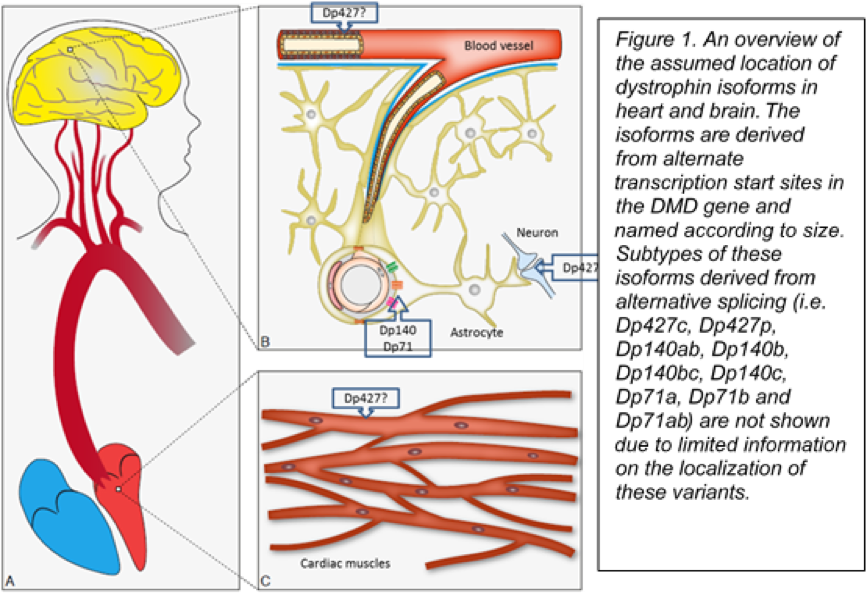The background of the reduced cerebral blood flow in Duchenne muscular dystrophy
Background
Duchenne muscular dystrophy (DMD) is characterized by severe and progressive muscle weakness due to mutations in the DMD gene which lead to the absence of the dystrophin protein. A significant proportion of the affected children suffer from specific learning and behavioral disabilities which are more common with distal mutations in the DMD gene that lead to absence of multiple dystrophin isoforms. Recently we reported a reduction in the amount of grey matter volume, altered white matter microstructure and reduced cerebral blood flow, assessed with magnetic resonance imaging (MRI) in DMD. Cerebral blood flow plays an important role in cognitive functioning and is potentially amenable to treatment. Therefore, we aim to explore the mechanism underlying the reduced perfusion in DMD.
Methods
Observational study. We postulate that either cerebral autoregulation is disturbed or systemic blood pressure is reduced in DMD. To test these hypotheses we will use a two-step approach: (1) we will assess the response to orthostatic change using continuous transcranial Doppler (TCD) and finger plethysmography to monitor systemic and cerebral blood flow velocity during head-up tilt (HUT), (2) we will quantify regional cerebral blood flow using MRI during resting conditions and during two different tasks, one motor independent test that only targets the visual cortex, and one cognitive sustained attention task that involves multiple brain regions to study regional changes in cerebral autoregulation.
Relevance
The primary aim is to study if systemic or cerebral reactivity in DMD patients differs from healthy age-matched controls, to determine whether cerebral autoregulation or systemic blood pressure underlies the reduced cerebral perfusion in DMD. The secondary aim is to study if changes in cerebral autoregulation are regional or global in nature.
Financiering: Duchenne Parent Project The Netherlands






